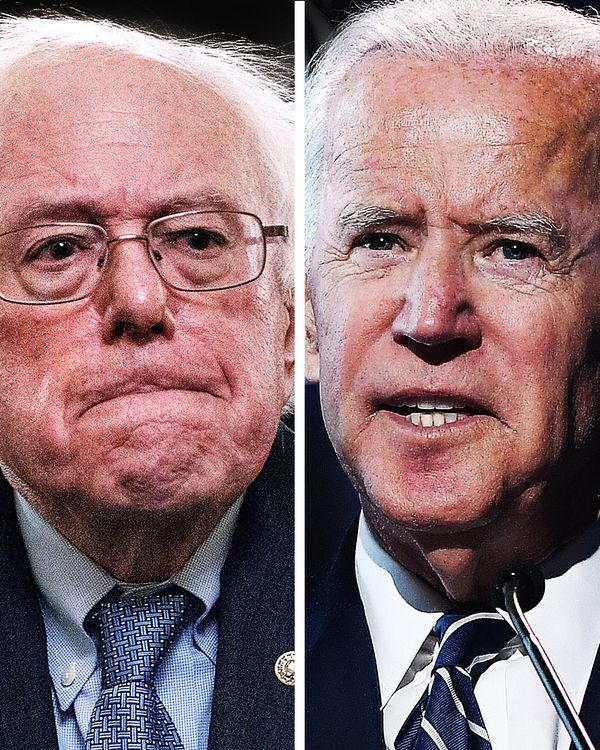
With Bernie Sanders’s announcement of a 2020 presidential candidacy, we know for sure that there will be at least one aspirant for the job who would turn 80 during his first term in office. He’s the second septuagenarian to enter the race, counting the 72-year-old incumbent, though Elizabeth Warren will turn 70 this summer. And the field could soon include another candidate who would have an 80-candle birthday cake in the White House, Joe Biden (a little over a year younger than Sanders).
Will our budding gerontocracy be an issue during the nominating or general election stages of the 2020 campaign?
The very idea seems to infuriate fans of Biden and Sanders, who tend to brush off questions about their heroes’ ages by denouncing ageism, touting their vigor as compared to the junk-food-loving and sedentary Trump, or pointing at each other (if Biden can run, so can Bernie, and vice versa). But it was an issue in the presidential campaigns of the two nonincumbent septuagenarian major-party nominees before Trump (Bob Dole in 1996 and John McCain in 2008 — both younger than Biden and Sanders will be in 2020), whose other unusual features overshadowed his age. So it cannot just be waved away as somehow irrelevant.
Presumably the younger Democratic rivals of Biden and Sanders will bring up the age issue indirectly by drawing attention to their own relative youth and/or their appeal to younger voters (though it will be tough for any of them to do better among younger voters than Sanders did in 2016). But the most destructive way it could arise, especially in the general election campaign in which no vulnerability will go unexploited, would be via a negative health event or some incident suggesting a “senior moment” or some more serious cognitive issue.
There is, of course, no way to know in advance if something of that nature might occur, or for that matter, which Democratic or Republican candidate it might afflict (though Trump’s amazingly low standard for coherence in public utterances, illustrated again just last week in his “emergency declaration” press conference, could mean he’s immune to “senior moment” suspicions). But as I noted in an earlier piece on the age issue in 2020, there are some probabilities that ought to be taken seriously:
There are certainly octogenarians who are physically fit, sharp as a tack, and as competent at work as any whippersnapper. But it’s no secret that when people, particularly men, get to that age, the risk of mortality rises significantly (a 75-year-old man has a 22 percent chance of dying within six years), and along with it the possibility of cognitive deterioration (an estimated 15 percent of people between the ages of 80 and 84 suffer from some form of dementia). If voters fear any of that happening, it could (particularly with some encouragement from the kind of intensely hostile conservative media that Sanders and Biden were spared in 2016) affect their electability in ways that are not easy to anticipate in scope and power. And even more obviously, if a 77- or 79-year-old candidate suffers from any real or perceived impairment, the issue could take over the campaign to an extent that makes Hillary Clinton’s email problem look minor.
Do Democrats really want to take that chance given the existential threat of a second Trump term? And conversely, could they find significant value in a situation where it’s Trump and Trump alone who is vulnerable to age-related voter concerns? Is that a potential advantage that should be casually tossed away?
These are certainly factors that ought to be taken into consideration along with current horse-race polling and other candidate assessments that don’t take terrifying if marginally likely possibilities into account. Democrats have the luxury in 2020 of a vast field of qualified candidates with platforms ranging across the ideological spectrum; it’s doubtful there’s any one candidate who is indispensable. Perhaps testing the upward limit of an intangible maximum age for running for president is worth the risk in order to beat Trump soundly or reward Biden or Sanders for past service. But dismissing the risk involved is plain foolish.






























